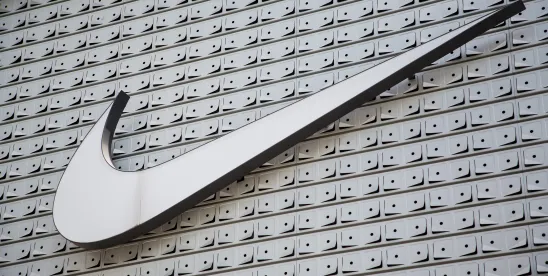In a recent decision, the United States District Court for the District of Missouri dismissed a putative class action complaint against Nike, in which the plaintiff had alleged that over 2,000 products in Nike's “Sustainability Collection” of garments were not sustainable and that the class representative alleged to have purchased some of them had been misled. Ellis v. Nike, et al., No. 4-23-cv-00632 (E.D. Mo. 2024). The decision re-affirms the pleading standard for plaintiffs in greenwashing cases: plaintiffs cannot satisfy their burden by making conclusory allegations that products advertised with "green" attributes are not actually green; they must cite specific facts as to what they were exposed to, why those products are not green and importantly, how they would know that this is so.
The amended complaint alleged that the plaintiff had purchased three garments from Nike's 2000+ piece “Sustainability Collection,” which Nike advertises as containing recycled and organic materials and which it says supports Nike's “move to zero carbon and zero waste.” The court noted that although the Amended Complaint contained numerous screenshots, lengthy excerpts from the defendant’s website, excerpts from product hangtags, and even an image of a product hangtag, “the amended complaint says nothing about what Plaintiff actually read or heard about the three products she purchased before she purchased them.” Nor did the amended complaint present facts suggesting that the plaintiff was a whistleblower or otherwise had special knowledge.
Instead, the complaint included a lengthy list of every Nike garment and the stated fiber content from each product label without including any allegations regarding why such representations were false. For example, the Amended Complaint did not say why a label stating that a product contains 80 percent polyester precludes the notion that some portion of the polyester content comes from recycled material.
In the key paragraph, the court's order dismissing the case states as follows:
“Missouri law requires Plaintiff to plead allegations showing that she acted as a reasonable consumer would in light of all circumstances [a common attribute of all state false advertising laws]. Plaintiff seeks to skirt that requirement by being especially vague on the circumstances present here. Plaintiff saw unspecified labeling, marketing, and advertising. Did she read them? Which ones did she see? And, perhaps most importantly, what else did they say? She does not say. She supplies only fragmented excerpts from unidentified labels, marketing, and advertisements. Since she did not plead what information was available to her at the time, nor what she reviewed or did not review, the Court does not have near enough of the circumstances. She, therefore, has not plausibly pleaded that she acted as a reasonable consumer would in light of all the circumstances.”
The court's opinion touches on an increasingly prevalent plaintiffs' lawyer tactic in the greenwashing litigation space – a plaintiff attempts to stitch together a narrative from a variety of disparate places, such as product labels, product and other websites, press releases, and articles in an attempt to make the communication seem collectively much worse than the label that the allegedly aggrieved consumer actually sees. The reasonable consumer is typically never exposed to all such statements in the way that plaintiffs' counsel assembles them and, therefore, cannot reasonably be said to have been misled to purchase a product based on the plaintiffs' suggested narrative.
Consider the burden of proof in consumer class actions. Plaintiffs cannot prevail merely by alleging that a claim is unsubstantiated – they must prove it false. Yet, the typical “green” claim can be difficult to assess absent obviously falsifiable representations. Thus, a claim that a product contains recycled materials or is recyclable can only be challenged with facts proving otherwise. At the margins, even claims about future carbon emissions reduction can only be challenged in court if the plaintiff can show that the defendant has no realistic action plan.
Does this mean that advertisers have a free pass to exaggerate environmental attributes so long as they make nebulous statements and/or scatter such statements widely? Certainly not, and this was clearly not so in this case. However, this decision shows that some courts will not disregard inquiry into what the reasonable consumer has been exposed to and reasonably understands, which should remain the touchstone of any well-pled false advertising complaint.
Missouri law requires Plaintiff to plead allegations showing that she acted as a reasonable consumer would in light of all circumstances. Plaintiff seeks to skirt that requirement by being especially vague on the circumstances present here. Plaintiff saw unspecified labeling, marketing, and advertising. Did she read them? Which ones did she see? And, perhaps most importantly, what else did they say? She does not say.




 />i
/>i
